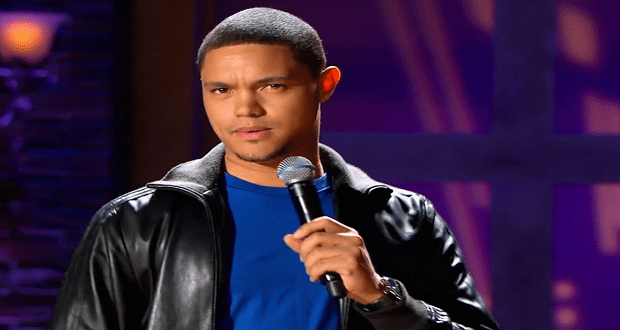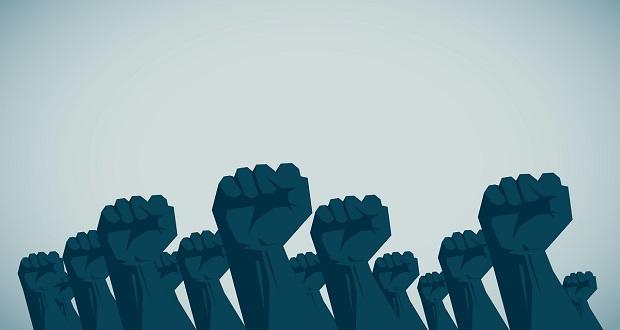In the book, Born a Crime: Stories from a South African Childhood, Trevor Noah describes his pathway from apartheid South Africa to the desk of The Daily Show. Among the many stories he shared, the one titled “Go Hitler!” really struck a chord with me. He began the story by describing his very successful entertainment enterprise, which evolved from selling pirated videogames and CDs to DJ’ing at parties. After becoming a DJ, he quickly realized that he needed more than a computer, a modem, and access to music from around the world because people did not know how to dance to the new music he played. In fact, he decided he needed a dance crew that could show people the steps to the songs as he played them. That is when Hitler, the dancer, came into the forefront of his story.
Hitler was, by far, the most talented dancer in his crew. Noah described him as someone who was “…mesmerizing to watch. He had a looseness and a fluidity that defied physics. [He] was incredibly handsome, tall, lithe, muscular, with beautiful, smooth skin, big teeth, and a great smile. …And all he did was dance.” Hitler soon became the star attraction of the group. The other dancers would warm up the crowd before he would make his grand entrance — usually with the crowd chanting in a wild frenzy,“Go Hitler! Go Hitler! Go Hitler! Go Hitler!” Needless to say, because of Hitler the group won many dance competitions, which, in turn, afforded them increased notoriety.
At this point you may be wondering: Why would someone name their child Hitler?
Part of the reasoning has to do with the way black people in South Africa choose names. From colonial times through the days of apartheid, black people were required to have an English name in addition to their African names. African names were carefully chosen and carried deep personal meanings. English names, likely required so white people could pronounce them, were chosen at random. They were usually picked from the Bible, based on a Hollywood celebrity, or even because of a famous politician in the news. In fact, some of Noah’s friends, in addition to Hitler, included individuals named Mussolini, Napoleon, and Bruce Lee.
We also need to understand that there are many histories, and they are all taught in different ways. In many educational systems, history is mostly taught as a bunch of facts to be memorized, regurgitated on a test, and then inevitably forgotten. As Noah stated, kids learning about World War II in South Africa were not being taught to think critically about Hitler, anti-Semitism, or the Holocaust. Neither were they learning that the racist policies of apartheid were inspired by the racist policies of the Third Reich. So in that context, the name Hitler would not carry the same offensive connotation for South Africans as, for example, the name Cecil Rhodes would.
With increased notoriety, the group started being booked in the suburbs. This change meant that they were DJ’ing more and more for white people, and thus came the invitation to perform at the King David School—a Jewish school.
The school was hosting a “cultural day” (a diversity program, so to speak), and Noah’s group, named The South African B-Boys, was one among Greek dancers, flamenco dancers, Zulu musicians, and many others. The B-Boys were anxious and ready to entertain an entire hall filled with Jewish kids. They start playing, the crew starts dancing, and by all accounts everyone present—the teachers, the chaperones, the parents, and the hundreds of kids—were having a great time.
The crowd was finally ready, and Noah proceeded to introduce his star performer by saying, “Give it up and make some noise for HIIIIIIIITTTTTTTLLLLLLLEEEEEEERRRRRRR!!!!!”
Typical to their performances, Hitler entered and positioned himself in the middle of the stage while all the other dancers chanted their usual chant: Go Hitler! Go Hitler! Go Hitler! At this point, the whole room froze and stared aghast. The B-Boys were oblivious and so was Hitler. Then the event organizer jumped on the stage yelling at Noah: “How dare you? This is disgusting! You horrible, disgusting, vile creature! How dare you!!!
The following events then ensued: Noah and the crew were trying to figure out the reasoning behind the teacher’s anger. Because he heard “This is disgusting”, he assumed she (the teacher) was referring to the way the crew was dancing. Hitler’s hips were, after all, gyrating and thrusting quite suggestively, basically simulating a sex act. This immediately propelled Noah into a defensive mode; after all, those were typical dance moves African people do all the time. They were part of their culture, and therefore should be appropriate at a “cultural” performance. In the end, he took offense at her taking offence, the exchange escalated, but it boiled over when the teacher yelled:
“You people are disgusting!
You people was his trigger because, from this point forward, he is seeing her as a racist. From his perspective, South Africans were now free, and they could perform any way they wanted. That phrase basically turned her into the white oppressor who was trying to subjugate them, again. She, of course, was thinking about the Nazis and the horrors World War II inflicted on many, especially the Jews
We need to stop moving on parallel tracks: That is, close enough but never intersecting.
There are many lessons we can learn from this story. To me, the most salient one is the fact that we often approach situations from different perspectives. We react to situations from our own standing while bringing along our own baggage and history. Invariably, this often happens without our taking into consideration somebody else’s point of view. So next time you find yourself in a situation where conflict is escalating, here are some things to consider:
- Stop, suspend judgement, and find a way to live through the discomfort until you are able to see your partner’s perspective. Not until you understand each other’s anger, hurt, indignation, frustration, disbelief, should you consent to proceed. Understanding somebody else’s perspective is an essential conflict resolution strategy.
- Situations should never be analyzed from a single perspective. Approaching it that way only ensures the analysis will be incomplete because only one perspective will be brought to the table — most likely the one from the party with power and privilege. Power and privilege must be shared.
- We need to create spaces for authentic conversations, where all voices are heard, and we work together to find a solution—not my solution, not your solution, but our solution. And we need to be comfortable with the notion that our solution will likely be different than what each one of us had imagined. It will, however, be a solution which both parties arrived at together.
- It is imperative we keep in mind that, while we may not have been taught the histories of many other groups, there is no excuse for ignorance. We need to actively seek a deeper understanding of the many different histories, struggles, and inequities around us. Knowledge of the “other” is essential to help us overcome our biases and prejudices.
- The many inequities certain groups still face in this country should outrage us. How much longer are we going to ignore the cries, the hurt, the indignation of groups such as African Americans, LGBTQ, and many others? For too long they have been trying to tell us their hurt. We need to stop and listen. But listen with the Chinese concept of Ting in mind. That is: with our ears so we can listen, with our eyes so we can notice, and with our heart so we have compassion. Only then will we be able to understand what is going on in their world and work together towards a shared solution.
- Finally, we can no longer afford to travel through life on parallel tracks. Parallel tracks give us the sense we are close enough to what is going on but they also afford us the privilege of not really getting involved in finding a solution. It is time to merge the tracks and head towards a common destination.



















